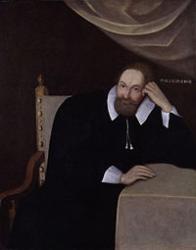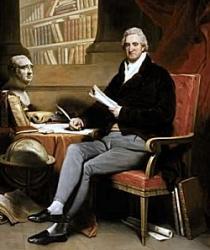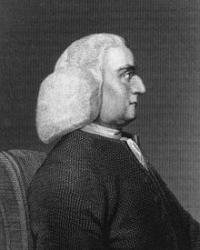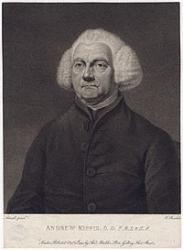Planning worship?
Check out our sister site, ZeteoSearch.org,
for 20+ additional resources related to your search.
- |
User Links
Person Results
‹ Return to hymnal




Export as CSV
Sir Henry Wotton

1568 - 1639 Person Name: Henry Wotton Hymnal Number: 372 Author of "How happy is he born and [or] taught" in A Selection of Hymns and Psalms, for Social and Private Worship. (11th ed.) Wotton, Sir Henry, M.A., born in Kent in 1568, and educated at New and at Queen's Colleges, Oxford. After spending nine years on the Continent, on his return he became secretary to Robert, Earl of Essex, with whom he continued until Essex was committed for high treason, when he retired to Florence. There he became known to the Grand Duke of Tuscany, and was sent by him, in the name of "Octavio Baldi," with letters to James VI., King of Scotland, in which the king was informed of a design against his life. On succeeding to the English throne James knighted Wotton and sent him as ambassador to the Republic of Venice. In 1623 he was made Provost of Eton (having previously taken Deacon's Orders). He died in 1639. His works include The Elements of Architecture, Parallel between the Earl of Essex and the Duke of Buckingham, Essay on Education, &c. His poems and other matters found in his manuscripts were published posthumously by Izaak Walton in 1651, as Reliquiae Wottonianae. This has been several times reprinted
--John Julian, Dictionary of Hymnology (1907)
Sir Henry Wotton
Daniel Turner
1710 - 1798 Hymnal Number: 244 Author of "Faith adds new charms to earthly bliss" in A Selection of Hymns and Psalms, for Social and Private Worship. (11th ed.) Turner, Daniel, M.A., was born at Blackwater Park, near St. Albans, March 1, 1710. Having received a good classical education, he for some years kept a boarding-school at Hemel Hempstead, but in 1741 he became pastor of the Baptist church, Reading. Thence he removed, in 1748, to Abingdon, and continued pastor of the Baptist church there until his death on Sept. 5, 1798. He was much respected throughout his denomination, and was the friend and correspondent of Robert Robinson, Dr. Rippon, and other eminent men of that day. He probably received the honorary degree of M.A. from the Baptist College, Providence, Rhode Island. Turner was the author of works on Open Communion and Social Religion; also of Short Meditations on Select Portions of Scripture. His Divine Songs, Hymns and other Poems were published in 1747, and his work, Poems Devotional and Moral, was printed for private circulation in 1794. Four of his hymns are in the Bristol Baptist Collection of Ash & Evans (1769), and eight (including the four already named) in Rippon's Baptist Selection 1787). Only the following are now in common use:—
1. Faith adds new charms to earthly bliss (1769). Excellence of Faith.
2. Jesus, full of all compassion (1769). Sinner's appeal to Christ.
3. Lord of hosts, how lovely fair (1787). Divine Worship. Altered in Baptist Psalms and Hymns, 1858, to “Lord of hosts, how bright, how fair!"
The well-known hymn "Beyond the glittering starry skies," in its enlarged form of 28 stanzas, was the joint production of Turner and his brother-in-law, the Rev. J. Fanch. [Rev. W. R. Stevenson, M.A.]
-- John Julian, Dictionary of Hymnology (1907)
Daniel Turner
W. L. Collett
Hymnal Number: 69 Author of "While raptured saints adoring stand" in A Selection of Hymns and Psalms, for Social and Private Worship. (11th ed.)
W. L. Collett
Munroe & Francis
Publisher of "" in A Selection of Hymns and Psalms, for Social and Private Worship. (11th ed.)
Munroe & Francis
William Roscoe

1753 - 1831 Hymnal Number: 50 Author of "Hymn to the deity" in A Selection of Hymns and Psalms, for Social and Private Worship. (11th ed.) Roscoe, William, the father, was born March 8, 1753, in Liverpool, of humble origin. After very meagre schooling, and three years of work in his father's market garden, he was articled to an attorney, and subsequently practised in Liverpool till 1796, when he withdrew from the profession. From the first literature was his chief delight, and throughout a long career of public usefulness he united its pursuit with the efforts of enlightened patriotism and the advocacy of higher education and reform. Liverpool was a centre of the old slave-trade, and Roscoe was one of the first to raise his voice against the iniquity. At the age of 20 he had already uttered a protest in his descriptive poem Mount Pleasant, and in 1787 he published a longer poem, The Wrongs of Africa (Pt. ii. 1788), devoted to the subject. During his brief parliamentary experience as member for Liverpool, in 1807, he had further opportunity of advocating the cause of liberty and humanity. His first great historical work, the Life of Lorenzo dé Medici, was published in 1796, and the Life and Pontificate of Leo the Tenth, in 1805. After withdrawing from his legal practice, Roscoe had hoped to be able to devote himself entirely to letters, but the claims of friendship induced him in 1800 to enter into a banking business, which involved him in commercial troubles, ending in 1820 in his bankruptcy. His library had to be sold, but part of it was bought by friends, and presented to the Liverpool Athenæum, which in 1789 Roscoe had been instrumental in founding. In 1822 he published Illustrations of the Life of Lorenzo dé Medici, defending the views adopted in his former history, and two years later edited a new edition of Pope's works, with a life of the poet. He died June 30, 1831. (Cf. The Life of William Roscoe, by his son, Henry Roscoe, in 2 vols., London, T. Cadell, 1833.)
As a member of the congregation of Unitarians meeting in Renshaw Street Chapel, Liverpool, Roscoe took part in preparing A Selection of Psalms and Hymns for Public and Private Worship, printed for their use in 1818. He contributed eight hymns and the concluding anthem. Of these hymns the following are in common use at the present time:—
1. Let our loud song of praise arise. Praise.
2. Go, suffering habitant of earth. Life, a Warfare.
3. Great God, beneath Whose piercing eye. Divine Providence.
4. Thus said Jesus, Go and do. Love to our Neighbour.
5. What is the first and great command ? The Commandments.
These hymns are in several Unitarian collections, including Martineau's Hymns, 1840. No. 3 was written in 1788, as a "secular hymn" of ten stanzas, to be sung at the Benn's Garden Chapel on the Centenary of the Revolution.
--John Julian, Dictionary of Hymnology (1907)
William Roscoe
Nathaniel Cotton

1707 - 1788 Hymnal Number: 17 Author of "This is the day the Lord of life" in A Selection of Hymns and Psalms, for Social and Private Worship. (11th ed.) Cotton, Nathaniel, M.D., born in 1707, and educated for the medical profession at Leyden. Giving his attention more especially to brain diseases, he first assisted a physician, who devoted his attention to the insane, at Dunstable; and they erected a large Asylum at St. Albans. In 1763 the poet Cowper became one of his patients, and, on his recovery, conceived a warm attachment for his medical friend. Dr. Cotton died at St Albans, Aug. 2, 1788. Several of his hymns appeared from 1760 onwards in Dr. Dodd's Christian's Magazine, some signed "Dr. Cotton, St. Albans," some “N.," and some without signature. His poetical works were published posthumously:— Various Pieces in Verse and Prose, 2 vols., Lond., Dodsley, 1791; and Visions in Verse, &c, with Memoir, 1808. His hymns came into use through Collyer's Collection, 1812.
They are:—
1. Amid the various scenes of ill. Affliction Sanctified. From Various Pieces, &c, 1791.
2. Tell me, my soul, O tell me why. Sin the cause of fear. From Various Pieces, &c, 1791.
3. This is the day the Lord of Life. Sunday. From Various Pieces, &c, 1791.
4. While sorrow wrings my bleeding heart. Suffering. From his version of Ps. xiii., "Offended Majesty, how long ?" in the Christian's Magazine, Feb. 1761.
5. With fierce desire the hunted hart. Ps. 42.
Dr. Cotton's most widely known hymn is, “Affliction is a stormy deep," q. v. It is a port of No. 5.
--John Julian, Dictionary of Hymnology (1907)
Nathaniel Cotton
Sidney Dyer
1814 - 1898 Hymnal Number: 40 Author of "Great Cause of all things" in A Selection of Hymns and Psalms, for Social and Private Worship. (11th ed.) Dyer, Sidney, who served in the U. S. Army from 1831 to c. 1840, is a native of White Creek, Washington County, New York, where he was born in 1814. On leaving the army he was ordained a Baptist Minister in 1842, and acted first as a Missionary to the Choctaws, then as Pastor in Indianapolis, Indiana (1852), and as Secretary to the Baptist Publication Society, Phila. (1859). He has published sundry works, and in the Southwestern Psalmist, 1851, 16 of his hymns are found.
The following are later and undated:—
1. Go, preach the blest salvation. Missions. In the Baptist Praise Book, 1871, and The Baptist Hymn & Tune Book, 1871.
2. Great Framer [Maker] of unnumbered worlds. National Humiliation. In the Boston Unitarian Hymn [and Tune] Book, 1868, and others.
3. When faint and weary toiling. Work whilst it is day. In the Baptist Praise Book, 1871.
4. Work, for the night is coming. Duty. This hymn is in wider use than the foregoing, but though often ascribed to Dyer, is really by Miss Anna L. Walker, of Canada, who published a volume of Poems, 1868. S. Dyer, in 1854, wrote a hymn on the same subject for a Sunday-school in Indianapolis, and hence the confusion between the two. In 1882 a cento beginning with the same stanza was given in Whiting's (English) Hymns for the Church Catholic, No. 366. Of this cento, stanzas i., ii. are by Miss Walker; and stanzas iii., iv. by Miss Whiting, daughter of the editor of that collection. [Rev.F. M. Bird, M.A.]
-- John Julian, Dictionary of Hymnology (1907)
==================
Dyer, S., p. 317, ii. Additional hymns by Dr. Dyer are given in the Baptist Sursum Corda, Phila., 1898, with the following dates :—
1. Enter, Jesus bids thee welcome. Invitation. 1883.
2. No more with horrors veil the tomb. Burial. 1897.
Dr. Dyer d. in 1898.
--John Julian, Dictionary of Hymnology, New Supplement (1907)
=================
Dyer, Sidney. (White Creek, New York, February 11, 1814--December 22, 1898, Philadelphia). Baptist. Indiana State University, honorary A.M. ; Bucknell University, honorary Ph.D. Missionary to the Choctaws early in his career. Pastorates at Brownsville, New York, 1842; Indianapolis, 1852-1859. District secretary of the American Baptist Publication Society, Philadelphia, 1859-1885. Author of eight religious books designed for children, two volumes of verse: Voices of Nature (Louisville, 1849), and Songs and Ballads (Indianapolis, 1857). Wrote a large number of hymns in Sunday School as well as church collections. In 1851, he published The South Western Psalmist (Louisville), which became known as Dyer's Psalmist. Of 467 hymns, 16 are by Dyer. Also wrote a prize-winning hymn "O wondrous land! thy onward march sublime" for the Jubilee of the American Baptist Home Mission Society which was help in New York in 1882. This 66-stanza hymn may be found in Baptist Home Missions in North America: Including a Full Report of the Proceedings and Address of the Jubilee Meeting . . . (New York: Baptist Home Mission Rooms, 1883). "Work, for the night is coming," written by Annie L. (Walker) Coghill, was sometimes ascribed to Dyer. The confusion arose when, in 1854, Dyer wrote a text on the same subject for a Sunday School in Indianapolis.
--Deborah Carlton Loftis, DNAH Archives
Sidney Dyer
Edmund Butcher
1757 - 1822 Hymnal Number: 299 Author of "Bright orb of heaven, thy circuit stay" in A Selection of Hymns and Psalms, for Social and Private Worship. (11th ed.) Butcher, Edmund, born at Colchester, Essex, in 1757, and brought up as a linen-draper. After undergoing a preliminary training for the Unitarian Ministry, he was appointed to the charge of Leather Lane Chapel, Holborn, in 1789. From thence he removed to Sidbury Vale, Sidmouth, in 1798. Died April 14, 1822. Memoir in the Christian Moderator, 1827. His works include Picture of Sidmouth; Tour through various parts of England; Sermons, to which are added suitable Hymns, 1798; and the Substance of the Holy Scriptures Methodized, 1801. His hymns were given in the two latter works, in the Protestant Dissenters’ Magazine (of which he was some time editor); in Kippis's Collection, 1795; the Christian Guardian, 1802-1808; Aspland's Selection, 1810; and from his manuscript in Howse's Selection of Hymns and Psalms, 1837. They number 116 in all; but few, however, have attained to any position in modern hymnals. These include the following:
1. Blest is the man that [who] fears the Lord. Ps. cxii. Published in the Exeter Unitarian Collection, 1812, in 5 stanzas of 4 lines. It is in common use in Great Britain and America.
2. Father of all, where shall we find? Divine Worship. In Dr. Martineau's Hymns, 1840, &c.
3. Great God, as seasons disappear. Harvest. This is the most popular of his hymns. It is annotated under its first line.
4. Hosanna! let us join to sing. Resurrection. Contributed to Aspland's Selection, 1810, No. 290; and repeated in Dr. Martineau's Hymns, 1840, &c.
5. With deepest reverence at Thy throne. God's Unsearchableness. This is in American common use as in Laudes Domini, 1884, No. 248. It was contributed to Aspland's Selection, 1810, No. 146.
-- John Julian, Dictionary of Hymnology (1907)
Edmund Butcher
Andrew Kippis

1725 - 1795 Hymnal Number: 354 Author of "How rich thy gifts, almighty King" in A Selection of Hymns and Psalms, for Social and Private Worship. (11th ed.) Kippis, Andrew, D.D., was born at Nottingham, March 28,1725, and educated for the ministry under Dr. Doddridge at Northampton, 1741-46. After a short residence with congregations at Boston and Dorking, he settled in London in 1753, as minister of the Princes Street Chapel, Westminster. There lie remained till his death in 1795, holding rank as the leading Presbyterian minister in the metropolis. For many years he was classical tutor at the Hoxton Academy, and afterwards at the Hackney College. He contributed largely to the Gentleman's Magazine and the Monthly Review, and edited five volumes of a new edition of the Biographia Britannica, a work commenced in 1778, and interrupted by his death on Oct. 8, 1795. His Life of Captain Cook was also published separately, and to his edition of Lardner's Works (1788) a Memoir was prefixed. His degree of D.D. was con¬ferred by the University of Edinburgh in 1767.
He was joint editor of A Collection of Hymns and Psalms for Public and Private Worship, selected and prepared by Andrew Kippis, D.D., &c. ; Abraham Rees, D.D., &c.; Rev. Thomas Jervis, and Rev. Thomas Mor¬gan, LL.D., London, 1795. This collection, commonly known as Kippis's, but sometimes as Kees's, passed through many editions, a Supplement being added in 1807, and was very generally used during the early decades of this century by congregations of Presbyterians and others, then become Unitarian in London and throughout the country [Unitarian Hymnody, § 9]. It contained 690 hymns.
The aim of the editors in their selection was to avoid “everything of a doubtful or disputable kind," and they adopt the language of Dr. Watts in the preface to his Hymns, "The contentious and distinguishing word of sects and parties are excluded." The alterations and omissions to adapt various hymns to the standard of the editors are considerable, though very little compared to what was done by others before and after them. The tone of the collection is somewhat colourless, and it gradually gave place among Unitarians to others which contained fuller and more varied expression of distinctively Christian feeling.
Two hymns by Kippis appear in this Collection.
1. Great God, in vain man's narrow view, The Incomprehensibility of God, which was generally adopted in later Unitarian books, and appears in Martineau's Hymns, 1840 and 1873.
2. How rich thy gifts, Almighty King, National Thanksgiving, which is four stanzas of the hymn, "Say, should we search the globe around," written for the thanksgiving appointed Nov. 29,1759, and appended to his Sermon on that occasion. It was given in full in Pope's Collection, 1760; and the Liverpool Octagon Collection, 1763. In Lindsey's Collection, 1774, five stanzas are given; in other early books only four, as in Kippis. The last two stanzas, somewhat altered, appear anonymously as: "With grateful hearts, with joyful tongues," in the Congregational Hymn Book, 1836, and the New Congregational Hymn Book, 1859.
[Rev. Valentine. D. David, M.A.]
--John Julian, Dictionary of Hymnology (1907)
Andrew Kippis


 My Starred Hymns
My Starred Hymns


